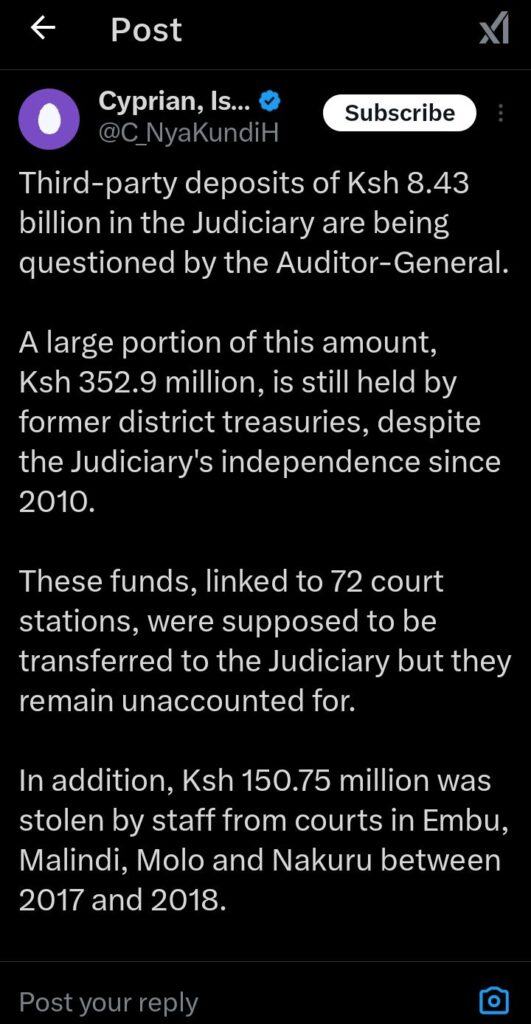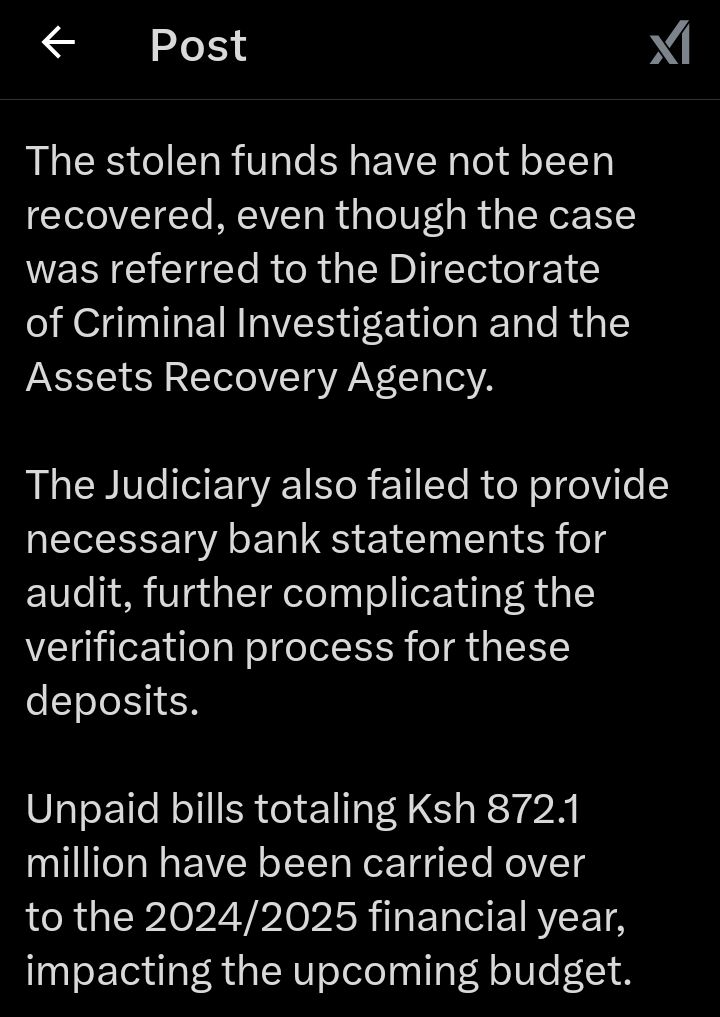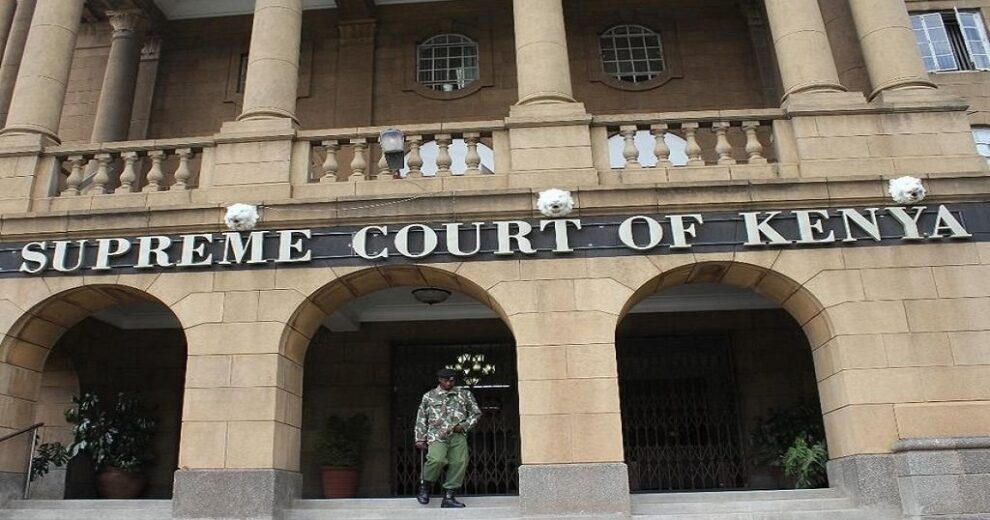The Auditor-General has raised concerns over third-party deposits amounting to Ksh 8.43 billion held by the Judiciary. These funds, which should have been properly accounted for, remain under question, raising doubts about financial management in the institution.
A major concern is that Ksh 352.9 million is still held by former district treasuries, even though the Judiciary has been independent since 2010.
The funds, which belong to 72 court stations, were supposed to be transferred to the Judiciary’s accounts, but the money remains unaccounted for. This raises suspicions about mismanagement and the possible misuse of funds over the years.

Another alarming issue is the theft of Ksh 150.75 million by court staff in Embu, Malindi, Molo, and Nakuru between 2017 and 2018.
Despite the matter being referred to the Directorate of Criminal Investigation and the Assets Recovery Agency, the stolen money has never been recovered. This points to a failure in both internal controls and law enforcement efforts to trace and reclaim the missing funds.
The lack of accountability in these cases only serves to weaken public trust in the Judiciary’s financial management.The situation is further complicated by the Judiciary’s failure to provide necessary bank statements for auditing.
Without these records, the verification of deposits becomes difficult, making it harder to determine whether the funds are being managed properly. This lack of transparency raises questions about whether there is a deliberate attempt to conceal financial irregularities within the Judiciary.
On top of these financial concerns, the Judiciary is struggling with unpaid bills amounting to Ksh 872.1 million, which have been carried over to the 2024/2025 financial year. These pending bills will put additional pressure on the Judiciary’s budget, affecting its ability to deliver services efficiently.

The accumulation of such large debts suggests poor financial planning and could lead to further complications if not addressed.
The Auditor-General’s report highlights serious gaps in the Judiciary’s financial management. The failure to account for third-party deposits, the theft of funds without recovery, missing bank statements, and the burden of unpaid bills all indicate deep-rooted problems.
If these issues are not addressed, they will continue to undermine the credibility of the Judiciary and its ability to function independently.
Stronger measures are needed to ensure that public funds are properly accounted for and that those responsible for financial mismanagement face consequences.
The Judiciary, as a key institution in the country, must uphold the highest standards of transparency and accountability to regain public trust.





















Add Comment